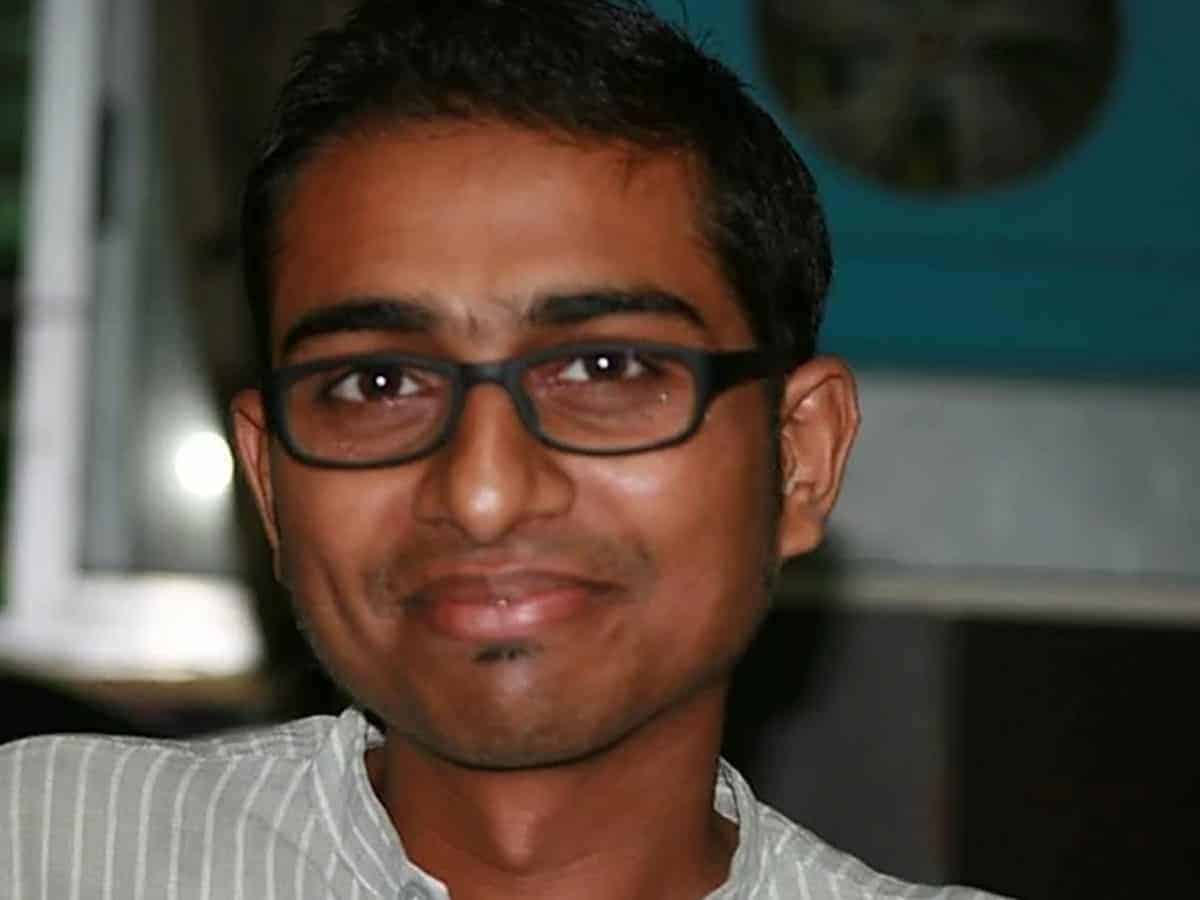Mahesh Raut, the youngest of those accused in the Bhima Koregaon violence case, turned 33 inside Taloja central jail on Wednesday, July 1 2020. The Adivasi rights activist from Maharashtra’s Gadchiroli district, has now spent over two years in jail after he was arrested on June 6, 2018 and booked under stringent charges like the Unlawful Activities Prevention Act (UAPA).
Mahesh Raut is one of the ‘Bhima Koregaon-11’, a term used for the 11 prominent writers, lawyers, journalists and human rights defenders including Sudha Bharadwaj, Rona Wilson, Gautam Navlakha, Varavara Rao, Surendra Gadling, Shoma Sen, Arun Ferreira, Sudir Dhawale, Vernon Gonsalves and Anand Teltumbde who have been arrested under UAPA for allegedly inciting violence and communal hatred, “giving provocative presentations and speeches” and having Maoist links, reported Article 14.
Friends and family decry stringent charges
Raut is a degree holder from the Tata Institute of Social Sciences and a former fellow of the Prime Minister Rural Development (PMRD) Programme, was first accused by the police of plotting an assassination attempt against PM Modi and delivering speeches, sending emails and circulating pamphlets which reportedly sparked violence in January 2018, Article 14 reported.
Now two years in the incarceration, Mahesh who suffers from ulcerative colitis is still languishing in prison without a trial. A co-convener of the Visthapan Virodhi Jan Vilas Andolan (VVJVA) and a member of the Bharat Jan Andolan, Mahesh’s arrest is wrongful, his family and friends have said time and again. In 2018, former fellows of the PMRD programme told Scroll.in, “Raids on his house and detention had become very common for him in last few months because of his tireless work with Bharat Jan Andolan. We see this hasty police action as the state government’s response to increasing exertion of oppressed class against sustained caste atrocities in the state.”
At the time, they had said that Raut had neither attended the Elgar Parishad nor was he a part of the organizing committee. This year, his sister Monali speaking about the charges he was booked under, told Article 14, “In fact, he told me that after he was arrested, the police did not ask him a single question about Bhima Koregaon, only about mining projects in Gadchiroli.”
His foray into activism
Raut’s fight for justice for the tribals of Gadchiroli was very close to his heart. The forests in Gadchiroli rest with the Government of India and the forest department. Though these forests are economically, ecologically, culturally and socially of utmost importance to the tribals, who depend on it for their livelihoods, they have been exploited by the authorities who have leased out chunks of forest land to industries for mining.
He started out as a community organiser where he mobilized Gram Sabhas and educated the people about their rights to secure formal community land titles to the forest, assert their rights to forest management and conservation under the Forest Rights Act (FRA), wrote Article 14. Raut helped these communities secure FRA rights to harvest and market forest produce like tendu and bamboo which had until then been under the control of the forest department and upper-caste contractors. It was Mahesh who relentlessly worked to inform the Gram Sabhas that it was their consent and that of the tribals which was imperative in the process of any mining lease to be awarded to any corporate. He taught them to take stock of their power and fight democratically against the stronghold of the government.
In 2017, Raut and Neema Pathak Broome had co-published an account of how people in Surjagad, Etapalli and Bhamragad, as in other parts of the district had continued a democratic resistance on the ground even though they have been regularly branded as ‘Maoists’ and booked under various sections of the IPC for fighting against corporate giants.
In a video, Adivasi leader and ZIla Parishad member Sainu Masum Gota spoke about how Mahesh Raut suffered at the hands of authorities for raising his voice for the Adivasis. Sainu said, “Mahesh Raut has shown us the way. Since 2013, he has been educating us about the Forest Rights Act, Panchayats (Extension to the Scheduled Areas), Act (PESA Act) and the rights we have as forest dwelling communities. He taught us to assert our rights and increased our knowledge about how we could sell our forest produce. All the benefits we have received, it’s all because of him. How did they accuse him of such charges? We will never call a knowledgeable man like him a ‘naxal’. The cases on him are wrong and he should be set free.”
Mahesh showed the helpless people a way, by encouraging them to become a part of the system to fight it. He stood by the Gram Sabhas as they decided to participate in Panchayat Samiti and Zila Parishad elections to ensure that their fight was democratic.
The son of a police patil (a quasi-judicial village-level officer), Mahesh has yet to traverse a long road to achieve justice. His family tells Article 14 that they’re allowed to speak to him only for two minutes a week. His spirit remains undiminished, his friends say, as they revel in the pencil sketches Mahesh bhau sends to them from prison. A compassionate man as described by his family, Mahesh’s quest for ways that he can contribute to the society is ongoing. But what comes across through all of Mahesh’s interactions is that he is always encouraging people to fight, to do better and foster growth.
Reminiscing Raut’s words his sister Monali told Article 14, “Through my youth, he would always ask me, ‘What are you planning to do next?’ When I would say, ‘I will study this or I will work there’, he would say, all that is okay, but what will you do to help society? Do something so that people miss you when you are gone.”

